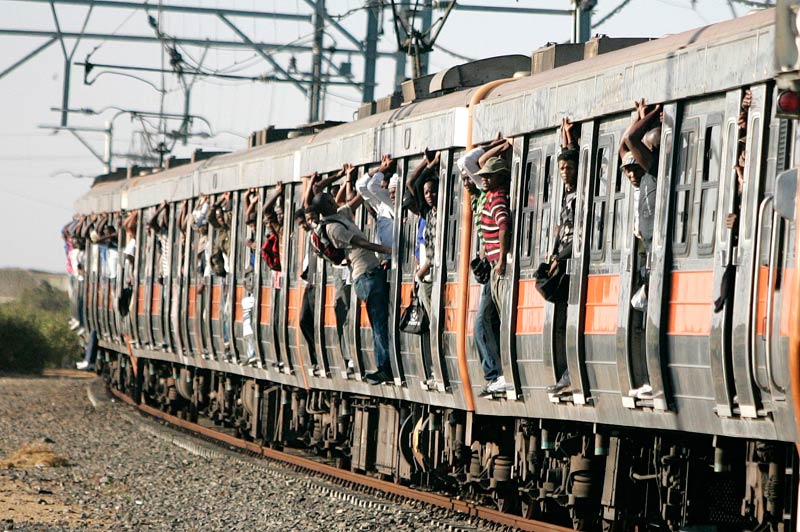Every evening around 7pm, they would pack up their belongings, take home the cents they made that day and come back the next morning to do it all over again. Some would stay longer at their stalls, well into the night.
At 4am every morning I wait for the sound of the trains coming in and out of the Khayelitsha train station, which is just three minutes away from my house. I’m an early riser so I’m reading or writing at this time. At 5am, the daily hustle starts. Their voices, calling out to commuters to buy a piece of meat, coffee, dagga muffins, a newspaper, sweets, a bible or teabags, reach my ears as loudly as the chugs of the trains. I have come to expect these sounds. They are synonymous with my mornings; an assurance that I’ve lived to see a new day.
But on the morning of May 13, I could sense that something was amiss. I didn’t hear their voices at 4am. When I got to the train station, I saw their makeshift stalls which had been erected against the walls of the train terminal tossed to the ground. Five guards in big jackets with a Prasa (Passenger Rail Agency of South Africa) logo kept watch. Their message was loud enough without a word being spoken.
The hawker fondly known as the ‘clown’ of the train station, who sees us off every morning and welcomes us back in the afternoon, was not at his usual spot. He has become a part of my life, the same way strangers who take the same bus or train route every day become part of each other’s lives. Our relationship is mostly nods and hellos. He’s a loud, charming character who’s never ever quiet. He has an audience to entertain, to sell bibles to.
That morning, he sat on his usual chair but not at his usual place by the entrance to the train station. He had already created his new makeshift stall: a flattened piece of cardboard balanced on top of two empty paint containers. Bibles were piled on top of it. The eviction the previous night had not deterred him. He was here to work, to avoid poverty creeping up on him as it does on so many. The other hawkers were not yet operating. The support that the wall of the train station provided was gone, so they needed to rebuild their stalls from scratch.
The woman who sells cow tripe, her face a painted canvas of struggle, resilience, and hope, was also not at her usual spot. Another lady, whose right hand always has a plastic glove on while her left holds a fork, was not selling snoek. The woman on the second level of the stairs, whose back is to the Khayelitsha Hospital, wasn’t there. She sells clothes, beanies, gloves, leggings and watches.
Two months later, their absence still haunts me. Metrorail owners moved them out of the station to an area outside the gates, an area already congested with other hawkers trying to make ends meet. There’s nothing to shield them from the winter cold or the rain, and the ‘clown’ man’s voice can no longer be heard.
We passengers may have a wider train platform to walk on without them there, but it’s little relief to me. I can’t buy a newspaper or coffee anymore, but my loss is meaningless compared to theirs.
Dudumalingani Mqombothi, a film school graduate, was born in Zikhovane, a village in the former homeland Transkei. He loves reading, writing, taking walks and photography. He plans to write a novel when his thoughts stop scaring him.
